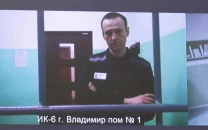Australia changes law to catch 'cold case' killers abroad
Cases will now be filed against suspects for crimes that have not been prosecuted in countries where they took place

STOCK IMAGE
The amendment means Australian authorities can mount cases against suspects for crimes committed before 2002 that have not been prosecuted in the countries where they took place.
The government updated the criminal code in 2002 after the Bali bombings to make extraterritorial crimes against its citizens prosecutable by Australian investigators.
Read: Australian nurse charged with supporting Islamic State in Syria
"(It's an) important day for the victims of murder or manslaughter across Australia," Industry, Innovation and Science Minister Christopher Pyne told reporters in Canberra.
"It's an important day, an emotional day for the Bradshaws, because it is going to allow some closure in their case for the traumatic taking of their sister and daughter's life."
Anthea Bradshaw-Hall, a school teacher, was 26 years old when she was killed in Brunei in July 1994. Her husband Jeff Hall told police he found her dead on their apartment floor after she had been strangled and stabbed several times.
Brunei police reportedly said then they did not have sufficient evidence to prosecute the suspect, who has not been named.
But police from South Australia state, where Bradshaw-Hall lived, launched an investigation into her death in 2004, collecting evidence which reportedly implicated one person, the Adelaide Advertiser newspaper said.
Pyne said he understood that investigators would push forward with the case once the bill -- which is expected to sail through parliament with the support of the government, opposition and minor parties -- was passed.
"It has been a long and protracted process since Anthea was murdered," Bradshaw-Hall's father, Martin Bradshaw, told the Advertiser in comments published Thursday.
Read: Australian reality TV stars 'shot at by Islamic State' in Syria
"It preys on your mind on a permanent basis. Once the amendment to the act has been passed, the evidence can be tested in court in South Australia. That is all we have ever been asking for."
Legislators said they had worked hard to ensure human rights safeguards were included in the bill and the changes would withstand any legal challenges.
Safeguards include not allowing a suspect that has already been prosecuted in the country where the crime was committed to be charged again by Australian authorities.
The penalty imposed by Australian courts for the crime also cannot exceed those that the guilty person would have faced in that nation. Prosecutions also have to be signed off by the attorney-general.
At the same time, if the suspect is living overseas, normal extradition processes would have to be followed to bring the person back to Australia to face justice, Pyne said.
He added that the suspect in the Bradshaw-Hall cases was not residing in Australia.



















COMMENTS
Comments are moderated and generally will be posted if they are on-topic and not abusive.
For more information, please see our Comments FAQ